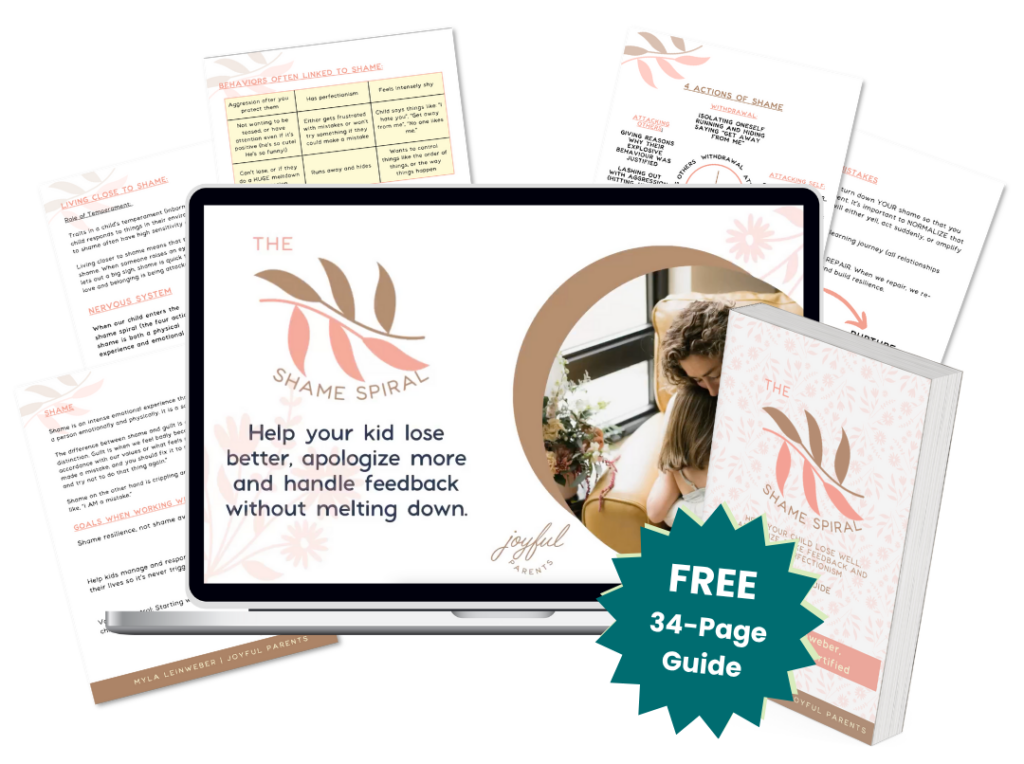It’s terrifying to hear those words from your child. Here’s what it really means—and what to say instead of scrambling for a quick fix.
The words landed like a punch to the gut: “I hate myself.”
She had just knocked over her cup, and we both got wet. I wasn’t even mad. But she looked down, curled her body inward, and whispered it so fast I almost missed it.
I froze. My instinct wanted to say “Don’t say that!” or “That’s not true!”
But I’ve learned that when spicy kids say something like that—it’s not attention-seeking. It’s a shame signal. And there’s something much deeper going on under the surface.
What “I Hate Myself” Really Means
When a child says “I hate myself,” they’re not trying to manipulate you. They’re not being dramatic.
They’re deep in the shame spiral.
Spicy kids often:
- Feel things more deeply
- Punish themselves worse than anyone
- Struggle to tolerate the feeling of having made a mistake
- Tie their identity to their behavior
So when they say “I’m bad” or “No one likes me,” what they’re really saying is:
“I messed up and I don’t know how to come back from this.”
What Not to Say (Even If It’s Well-Intentioned)
In that gut-wrenching moment, you might feel an urge to say:
- “You don’t hate yourself!”
- “You’re amazing!”
- “That’s a terrible thing to say!”
But even loving statements like these can unintentionally make shame worse—because now your child feels bad for feeling bad.
Instead of pulling them closer, they feel like they have to hide even more.
What to Say Instead
Here’s how to respond when your child says something like “I hate myself” or “I’m so stupid”:
Validate the emotion before shifting it
“That’s a big feeling. I’m here with you in it.”
Separate behavior from identity
“You made a mistake—and you’re still a good kid.”
Help them repair—but only after regulating
Don’t rush into a conversation about consequences or apologies. First, settle their nervous system. Later, say:
“What can we do to fix that together?”
“You are the kind of person who can make it right.”

You don’t have to face these moments alone.
The Shame Spiral Workshop is your guide to:
- Understanding what shame looks like in spicy kids
- Knowing what to say (and what not to say) when your child spirals
- Helping your child build real shame resilience—not just avoid consequences

And if you’re ready to go deeper and truly transform the cycle of dysregulation in your home, Regulate & Relate walks you step-by-step through how to:
- Reduce emotional outbursts
- Build emotional safety
- Parent with confidence—even when your child’s reactions are big
These two tools work beautifully together. One helps you in the moment. The other builds long-term change.
You’re Not a Bad Parent. Your Child Is Not Broken.
Hearing your child say “I hate myself” can feel like a parenting emergency.
But what your child really needs in that moment isn’t a perfect fix—it’s a calm confident parent someone who sees through the shame and into the child they still are.
And every time you respond with steadiness, you help your child believe they’re still lovable—even when they make a mistake.
That’s what builds real resilience. And it’s how we break the cycle.
Related Posts
-

How to Handle Holiday Meltdowns in Front of Family Without Shame or Power Struggles
There is a moment so many parents tell me they fear the most. A big family gathering. Your child already running hot. Too many people. Too many expectations. Too many eyes. And then something small happens. A cousin grabs a toy Someone tells them to say thank you A tag is itchy The noise is…
-

I Love My Child, But I Don’t Always Like Them
You love your child more than anything. You’d throw yourself in front of a bus for them, show up at every game, and lose sleep night after night to make sure they’re okay. And yet—there are moments you don’t like being around them.